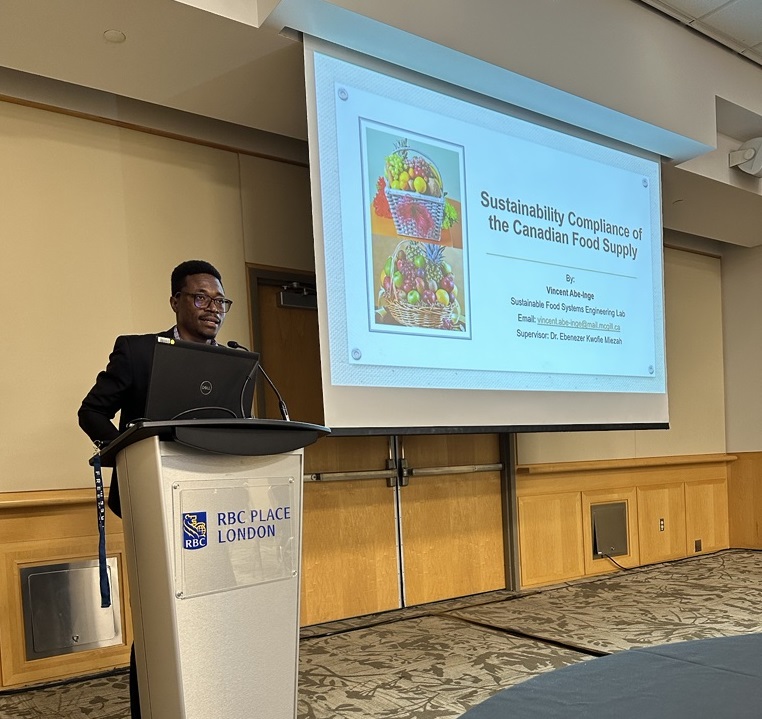The Canadian Food Supply does not Support Sustainable Food Consumption – Says Mr. Vincent Abe-Inge (@ the 2023 CIFST Annual Food Summit) 7-9th June in London, Ontario.

July 23, 2019
Mr Vincent Abe-Inge reported in his presentation at the 2023 Annual CIFST Food Summit
that the Canadian Food Supply was at variance with proposed sustainable food consumption guidelines.
His study, "Uncovering the Gap: Assessing the Compliance of the Canadian Food Supply to Dietary Recommendations and
Its Impact on the Environment," which was accepted for an oral presentation at the CIFST Annual Food Summit,
revealed this.
The Canadian Food Science and Technology Annual Food Summit is the largest conference in the field of Food Science
in Canada.
The 2023 summit occurred from 6th to 9th June 2023 at the RBC Convention Center and DoubleTree
by Hilton Hotel in London, Ontario. It hosted a 3-minute Ph.D. Thesis Competition and an Undergraduate
Team Project Design competition alongside presentations from industry and academia and exhibitions from food
and research equipment/tools manufacturers.
The presentations included oral and poster presentations from the various participants in sustainability,
nutrition, food chemistry, and industry.
Dietary recommendations to support climate-friendly food consumption suggest higher consumption of nuts, seeds, and
legumes and a reduced intake of animal-sourced proteins.
Healthy eating guidelines such as the EAT-Lancet and the
Canada Food Guide also recommend reduced sugar, added oils, and reduced animal food intake.
For consumers to comply with these proposed guidelines, it is necessary to ensure compliance with the food supply
since people make dietary choices based on availability and accessibility.
The findings in Vincent's study, which Dr. Ebenezer M. Kwofie supervised, indicated that the daily supply
of nuts, seeds, and legumes per capita was lower than the recommended daily intakes. At the same time,
sugar and red meat exceeded the recommended daily intake.
Vincent recommended measures such as reducing taxation on recommended commodities while increasing the taxation of the discouraged food groups.
At the same time, he recommended government investment in increasing the supply of recommended food groups and investing
in restructuring of the Canadian Food Production System. Finally, he recommended
further studies to investigate the feasibility of implementing these recommendations.
In addition to his presentation, Vincent expresses his joy in participating in the conference.
He described the conference as an academic retreat where there was a display of varying intellectually
stimulating research works and exhibitions. At the conference, he found a good blend of his
research interests in Food Science, Sustainable Foods and Sustainable Food Systems.
